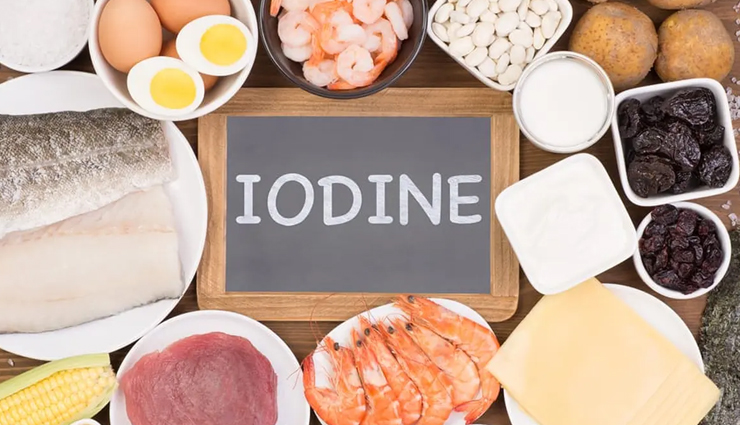- Home›
- Healthy Living›
- 8 Foods You Should Eat And Avoid In The Hypothyroidism Diet
8 Foods You Should Eat And Avoid In The Hypothyroidism Diet
By: Kratika Thu, 30 Mar 2023 7:03:28

Hypothyroidism is a medical condition that occurs when the thyroid gland, located in the neck, doesn't produce enough thyroid hormones. These hormones play a vital role in regulating metabolism, which affects many bodily functions, including body temperature, heart rate, and energy levels.
There are several causes of hypothyroidism, including autoimmune disorders, radiation therapy, surgical removal of the thyroid gland, and certain medications. The most common form of hypothyroidism is Hashimoto's thyroiditis, an autoimmune disease that causes the immune system to attack the thyroid gland.
Symptoms of hypothyroidism can include fatigue, weight gain, sensitivity to cold, dry skin, constipation, depression, and memory problems. Hypothyroidism is diagnosed through a blood test that measures thyroid hormone levels.
Treatment for hypothyroidism typically involves taking a synthetic thyroid hormone replacement medication, such as levothyroxine, to help restore normal thyroid hormone levels in the body. It is important to work closely with a healthcare provider to manage hypothyroidism and ensure that the appropriate treatment plan is followed. Here are some foods that you should and should not have on your hypothyroidism diet.

Foods You Should Eat
# Iodine
The body needs iodine to make thyroid hormones, but the body cannot produce it; thus, iodine must be obtained from food. A lack of iodine can also result in an enlarged thyroid gland, known as a goiter. Iodine insufficiency is uncommon in the United States due to the widespread usage of iodized table salt, but it is frequent in other countries.
It is critical to avoid taking too much iodine, which can aggravate both hypothyroidism and hyperthyroidism.

# Zinc
Another mineral that may benefit thyroid hormones is zinc. One small-scale research found that zinc supplementation, alone or in conjunction with selenium supplementation, enhanced thyroid function in hypothyroid women.

# Selenium
Selenium is a micronutrient with antioxidant properties that aids in the generation of thyroid hormones. It is naturally found in thyroid tissue. According to a 2017 study, maintaining selenium levels in the body aids in the prevention of thyroid illness and supports general health.

Foods You Should Avoid
# Processed Foods in Packages
Having an underactive thyroid raises a person’s risk of high blood pressure, and overeating salt increases this risk even more. Processed foods include a lot of salt, which persons with hypothyroidism should avoid because high sodium intake can significantly increase blood pressure.

# Gluten
Gluten can irritate the small intestine and interfere with the absorption of thyroid hormone replacement medicine if you have celiac disease. According to a May 2017 paper published in the journal Endocrine Connections, hypothyroidism and celiac disease frequently coexist.

# xcess Fiber
Fiber is beneficial to your health, but too much might complicate your hypothyroidism treatment. According to the government’s Daily Guidelines for Americans, persons up to 50 should consume 25 to 38 grams of fiber each day

# Alcohol
According to research published in the Indian Journal of Endocrinology and Metabolism, alcohol use might have a negative impact on both thyroid hormone levels in the body and the thyroid’s capacity to make hormones.
Alcohol appears to have a toxic impact on the thyroid gland, impairing the body’s capacity to utilize thyroid hormones. People with hypothyroidism should avoid alcohol totally or drink in moderation.

# Fatty Foods
Fats can also affect the thyroid’s capacity to generate hormones. Some doctors advocate avoiding any fried meals and limiting your intake of fats from sources such as butter, mayonnaise, margarine, and fatty cuts of meat.
These are only some of the general information about hypothyroidism diet plans. If you want to have the best diet for hypothyroidism, you should ask your healthcare providers or medical experts to see what works for you.





